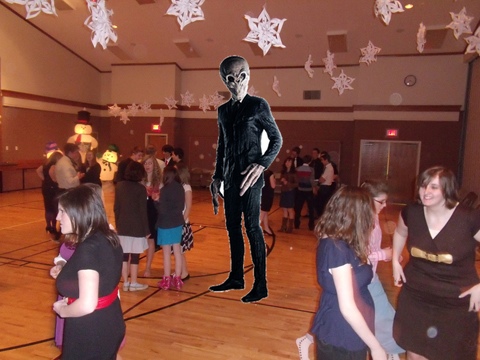Okay, you're about to host a Japanese student in your home. What a great decision! I applaud you! Having both hosted many exchange students from around the world, as well as having been an exchange student myself (twice), I cannot tell you enough how wonderful of an experience it is. Hosting an exchange student can give you better understanding of another culture, as well as an interesting perspective on how you live your own life as you try to see it from someone else's eyes. It can also bring you lifetime friendship, if you do it right.
What NOT To Do
In this article, though, I'm going to go over the opposites. Let's focus on all the things you could do wrong. How can you ruin your exchange students' lives forever… or at least leave a bad taste in their mouths?
1. Assume You Know ALL About Their Culture

Oh, you went to Japan once for a business trip? Then you totally know ALL about the culture. Be sure to tell your exchange student how much you appreciate the art of sumo, and admire the samurai culture that is still so prevalent today. How many of their friends have committed seppuku?
Or perhaps, you spent your ENTIRE summer watching anime, so now you know everything that Kyoto Animation has to teach. Show your exchange student how you figured out your name in Kanji and how you've watched all episodes of Lucky Star, so you know what Japanese school life is like totally and completely. Then, when they say they haven't seen it, freak out and offer them to watch the whole show with them, three episodes a day! They'll probably be too polite to decline.
The Reality:
Unless you have spent a considerable amount of time in Japan, you probably aren't an expert on Japan. Even if you are, you don't know this person's specific life or their individual circumstances. Of course, definitely share with them your enthusiasm for Japanese culture, but don't be stuck up about it. Ask questions and learn from them.
2. Assume Their English is Perfect, (Or Nonexistent)
Everyone speaks English nowadays, right? It's the international language! So of course Riko, who is going to be here for a year, knows English really well and just wants to practice it! Whoops, turns out she doesn't get anything that you're saying! Okay, so your normal way of communicating has failed you – the best you can do is use hand gestures and basic words to get the point across. "America, eat hamburger. Hamburger, cow. Kill cow, eat. Fries, potatoes. We go to restaurant now. You, come?"
The Reality:
Try to take it as it goes. Don't dumb things down for the student, as they want to hear correct grammar, but don't overwhelm them. Sometimes, speed is fine, but make sure to repeat and enunciate something only if the student doesn't understand it at first.
3. Take Them to an Authentic Japanese Sushi Restaurant to Help Them Feel "at Home"

Wow, Keiko has spent an entire week at your house in this strange, foreign country, eating bizarre (and heart attack-inducing) foreign foods (If you can call Taco Bell food). I bet she misses her traditional diet of sushi. Wait, you remember that there is a Samurai Sushi restaurant a few miles away! You can help her feel at home with dragon rolls and sushi pizza. To empathize how thoughtful you are, constantly ask her if it's "just like home?" Surely she's smiling and nodding shyly, right?
The Reality:
Americanized sushi restaurants are very different from Japanese sushi restaurants. Japanese sushi is much more simple and doesn't include fried things, mashed things, or sauces on rolls and nigiri. Japanese people don't even eat sushi as often as you might think. Some Japanese friends of mine really love Americanized sushi, and some hate it. It would definitely be an interesting experience to take them to a sushi belt run by Koreans with Mexican chefs, but don't expect it to be an experience that would be comforting and home-y for them – it's just as foreign as Red Robin.
4. Leave Them To Take Care of Your Kids

Kids love to hang out with other kids, right? Sixteen year old Hiro will be the perfect playmate for your six year old boys! In fact, you're sure he'll be such a good playmate that he'll never want to leave them alone! Now you'll never have to pay for the mouth-breathing fourteen year old next door to come over and eat all of your potato chips ever again!
The Reality:
Don't let having younger children keep you from hosting a student. Actually, a host family with small children is a pot of gold for most exchange students! Just make sure not to make them feel obligated to play with your kids all the time – seriously, they're not babysitters.
5. Argue With Your Parents
Okay, your stupid mom won't let you go to Stacy's birthday party because you didn't clean your room. But Stacy is like, your best friend, and you are GOING to that party. Don't mind that Mariko is sitting at the table with you and it's only her second night here – just start unleashing all the words you never thought you would say to your mother all at once, smash your dinner plate on the ground, and then make sure to cry a little bit. Oh, and don't forget to scream at the top of your lungs the entire time. That's really charming.
The Reality:
Just because an exchange student is around doesn't mean that you have to be completely pleasant 100% of the time, but imagine how awkward it would be if you were stuck in a stranger's home where the entire family was at each other's throats all the time. Plus, it's much less common (although not completely amiss) for kids to yell at their parents in Japan, so it wouldn't be just rude, it'd be a crazy culture shock, too.
6. Leave Them At Home When You Go Out, They Don't Want to Run Boring Errands

Oops, you have to go to the bank and then the mall to pick up a birthday card for your grandma. Then, it's off to Costco to get some almond butter. Leave Daisuke at home, he doesn't want to run those boring errands with you, he's a teenager. You're sure he'd rather stay at home and watch TV.
The Reality:
In reality, errands can be really fun for exchange students. Banks, malls, grocery stores, and other things you might find mundane are often times a new, exciting experience for exchange students. If you live in the US, be sure to take them to Costco or Walmart. I consider it a must every time I have someone from out of the country visiting. Hey, look, Costco sells things in "American size!"
7. Offer Them Chopsticks With Every Meal

It's time to prepare the first meal for Kotoe and Sayoko! So, you whip up some meatloaf, mashed potatoes, and macaroni salad. But wait – Kotoe and Sayoko are from Japan! They use chopsticks! You know that if you were in Japan, you wouldn't be able to use chopsticks at all, and you would totally ask for a fork. But these poor girls have been oppressed by their culture and taught to be timid and shy, so of course they wouldn't ask for a fork! So you run and grab your cheap pairs of wooden waribashi that you've used a couple times over the past 5 years or so and offer a pair to each of them. You're so thoughtful!
The Reality:
Although Japanese people use chopsticks for Japanese-style meals, they also use forks, knives, and spoons for Western-style meals. Some kids even pack a fork instead of chopsticks in their bento lunchboxs on a daily basis. So, unless they ask for chopsticks, they don't need them.
8. Treat Them Like Special Guests

Mika is here! We must treat her well! She doesn't have to do any chores or anything – she's our special, Japanese guest. In fact, she's not allowed to do any chores at all. She is our ohime-sama for the month!
The Reality:
Your exchange student is doing a home stay for a reason: to find out what life is like in a foreign country and to be part of a family. If you really want to bond with your student, making them feel like part of the family will help. And what better way to make them feel like part of the family than to make them do chores like everyone else? They'll probably jump at the chance to help out.
9. Let Them Experience the Language by Watching You Talk to Your Family

Woohoo! We just picked Ken up from the airport! It seems like his English isn't that spectacular, but you know that he's here to observe and get better. So, don't talk to him at all; you can wait until he gets better at English to talk. Instead, let him listen to you talk to your sisters, your mom, and your boyfriend. He's sure to absorb things like crazy! Because like, you know, you don't even know what to talk to him about.
The Reality:
I know it's hard to have an extensive discussion with someone who barely knows the language, but when you talk with your family at your normal speed, it isn't so much listening-study time with them, it's space-out and daydream time. The thing that will allow them to improve their language the most is letting them talk. So ask them simple and open-ended questions. Some good questions to get them talking are "What is your hometown like?", "Is ____ _the same in Japan?" "Tell me about your family." Usually asking them what they think about your country and asking them what's different or the same can start up some discussions that go other places.
10. Take Them to Only the Biggest, Touristy Places

Okay, Toshi has one week with you in your town, so where are you going to take him? Well, we have to hit Mall of America, Multnomah Falls, The Bean, and all the other big attractions you can think of, right? Let's make sure that he sees every single famous landmark in the area. Sure, that might be all we do in his short stay here, but we must squeeze every last thing in!
The Reality:
Sure, tourist attractions are fun – that's why they're so popular! But, sometimes it's the local things that are the most memorable. Sometimes it's better to just hit the regular mall, your favorite street in town, or even the park. Those are the things that you can only really do in a home stay. Any old tourist can do the big things.
11. Let Awkward Silences and Drives be… Awkward

Well, awkward long silences and boring car rides are a given. There's only so much you can talk about in the car while you sit in the backseat with your exchange student. So, just let it be awkward. It can't be too bad, right?
The Reality:
Remember when you were a kid and did things like I Spy, hand clapping games, and told riddles during car trips? You can still do that (even in old age)! And what's even better, Japanese people have their own children's games, too. Reliving your childhood can be really fun and get those bonding-chemicals rushing through your brains as you laugh at the same mistakes, victories, and thumb-war wins together!
Still Interested?
Well you should be! I hope this article hasn't diminished your excitement to host an exchange student in any way, as it is both a fun and educational experience. If you're serious about hosting, check out these programs as well as programs in your local area to see if you are eligible to host a Japanese (or any nationality) student!
Good luck, and happy hosting!
